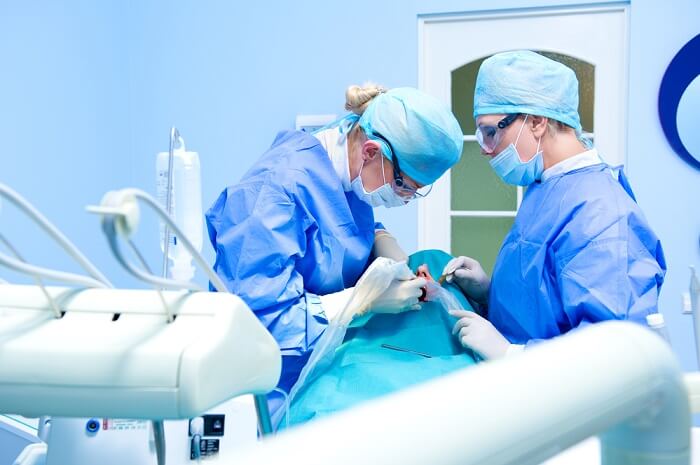We all crave that perfect natural smile to wear and show to the people around us: a perfect denture with no problems whatsoever and bright white teeth. However, like any other part of the body, the teeth can suffer from diseases such as parodontosis, a condition which causes in time the deterioration of the patient’s teeth. Many people nowadays suffer from dental problems and need to go for a dental implant surgery. It’s not an uncommon issue, and with the help of modern technology, the procedure of getting your teeth done is painless and safe.
What Exactly Does the Dental Implant Procedure Imply?
A dental implant surgery is one of the most common procedures a dentist performs on a daily basis. From bone graft tooth to full-scale implants, the development of science allows dentists to operate with the utmost precision while ensuring a painless experience to their patients. Before reaching the conclusion that you need a surgical intervention, the doctor performs a series of X-rays or other relevant checks to determine what is the best approach to take.
Removing the Tooth
The first step of any dental implant surgery is removing the damaged tooth, which usually happens after the control. Removing a tooth happens after the doctor decides that the damaged tooth is in a very poor condition. This is a procedure performed with the help of anesthetics, making it a painless experience for the patient.
Time to Heal After the Extraction
After successfully removing the damaged tooth, the gums are given time to heal for a period of time. The doctor will establish it together with the patient. It can expand from several weeks to a few months, depending on the patient’s rhythm of healing. After the gums fully recovered, the dental healthcare professional moves to the following step.
Getting the Abutments
After the gums have successfully recovered from the extraction, the next step is getting the abutments. Getting them inserted is the hardest part of the procedure. Many people are afraid of a dental implant surgery out of the fear of having the denture implants fixed into their jawline. One of the most asked questions in the dentist’s cabinet is “Does the implant hurt?” The answer is “no”. You should not fear oral surgery, as it is not nearly as painful as you imagine it.
Most patients describe the sensation as a “pinch” into the jawline. Once the dentist installs the abutments, the tissues are given, again, time to heal, which can vary from case to case. The abutments function like getting an organ transplant: the body needs to familiarize with the foreign body. Then, the immune system must decide whether it perceives it as a threat or not.
Fixing the Denture Implants
If the patient’s organism accommodates the implant, the doctor can proceed with the final step of the procedure: fixing the denture implants per se. This part is the least complicated of them all. The dental healthcare professional attaches the implants to the abutments, and the procedure is complete. The patient has a new tooth to replace the damaged one.
Of course, there are cases when the full-scale surgery is not necessary. The dentist may establish that he will remove only a part of the damaged tooth, especially if the roots are undamaged. This procedure is known as tooth grafting. It is less complicated than a dental implant surgery and requires less time for healing. A bone graft tooth is still your tooth with significant improvements.
Prevent Rather Than Treat
It varies from patient to patient what type of procedure the dentist must perform. A checkup to the doctor’s office will determine what are your needs. Even if the denture is perfectly healthy, going to the dentist’s office at least once every six months should become a habit. Prevention is better than treatment. The most important preventive measure is taking care of your oral hygiene, by brushing, rinsing and flossing daily.
Many cases which are preventable from reaching a point where a dental implant surgery is necessary. Early intervention may save you the trouble. The dental healthcare professional will assist you throughout the process. So, go on and make an appointment to the dentist today and save the trouble of tomorrow.

